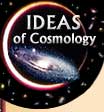
|
|
 |
Who
Was Aristotle? |

|
|
|
Aristotle
(384-322 B.C.E.) |
||
|
Aristotle was the son of the personal physician to the king of Macedon, a poor land of unruly people at the northern edge of the Greek peninsula. When he was 17, in 367, Aristotle traveled south to Athens. There he spent the next 20 years studying at Plato's Academy. Meanwhile, back in Macedon, Philip II claimed the throne in 359 and gradually extended his rule. Athens remained his main opponent. The anti-Macedon feeling in Athens, combined with Plato's death in 347, encouraged Aristotle to leave Athens. In Asia Minor he founded a new academy under the patronage of a local ruler, whose 18-year-old adopted daughter Aristotle married. From his later description of the ideal age for marrying as 37 years for the man and 18 for the woman, it may be inferred that Aristotle's voluntary exile from Athens was not an unhappy one. In 342 Aristotle returned to Macedon to tutor Philip's son, Alexander. Philip completed his conquest of Greece in 338, only to be assassinated in 336. Alexander took the throne and Aristotle returned to Athens comfortably on the side of the victors. While Alexander was conquering the Near East, he did not neglect to send back to Athens plants, animals, and Babylonian astronomical records for Aristotle to study. When Alexander the Great died, in 323, Aristotle again went into voluntary exile. He died a year later, in 322. |
||
Copyright ©. Brought to you by the Center for History of Physics, a Division of the American Institute of Physics |